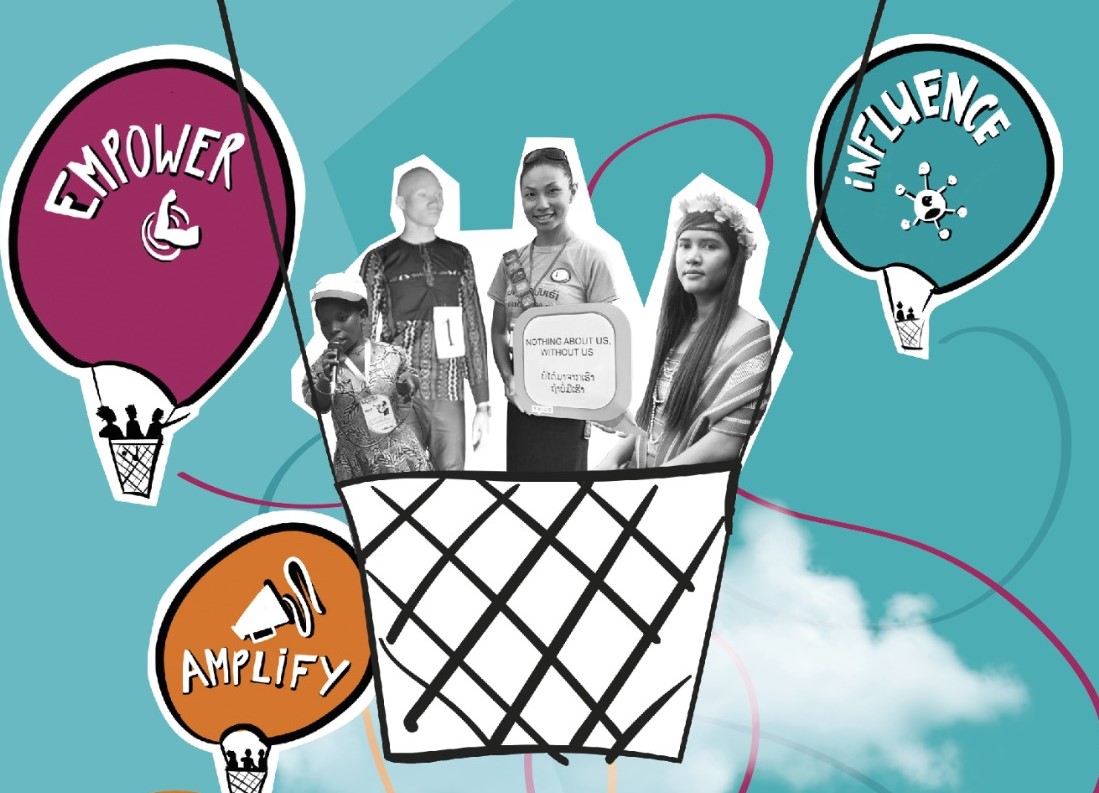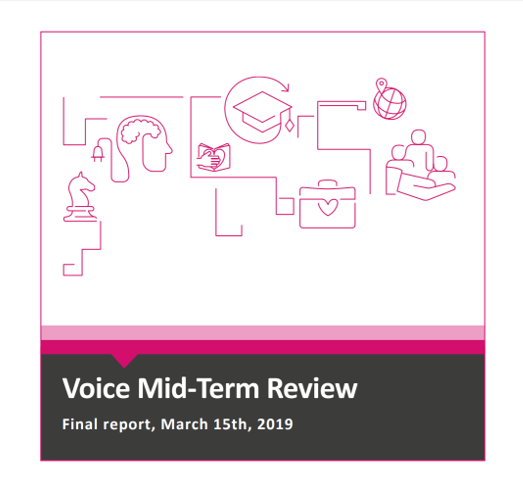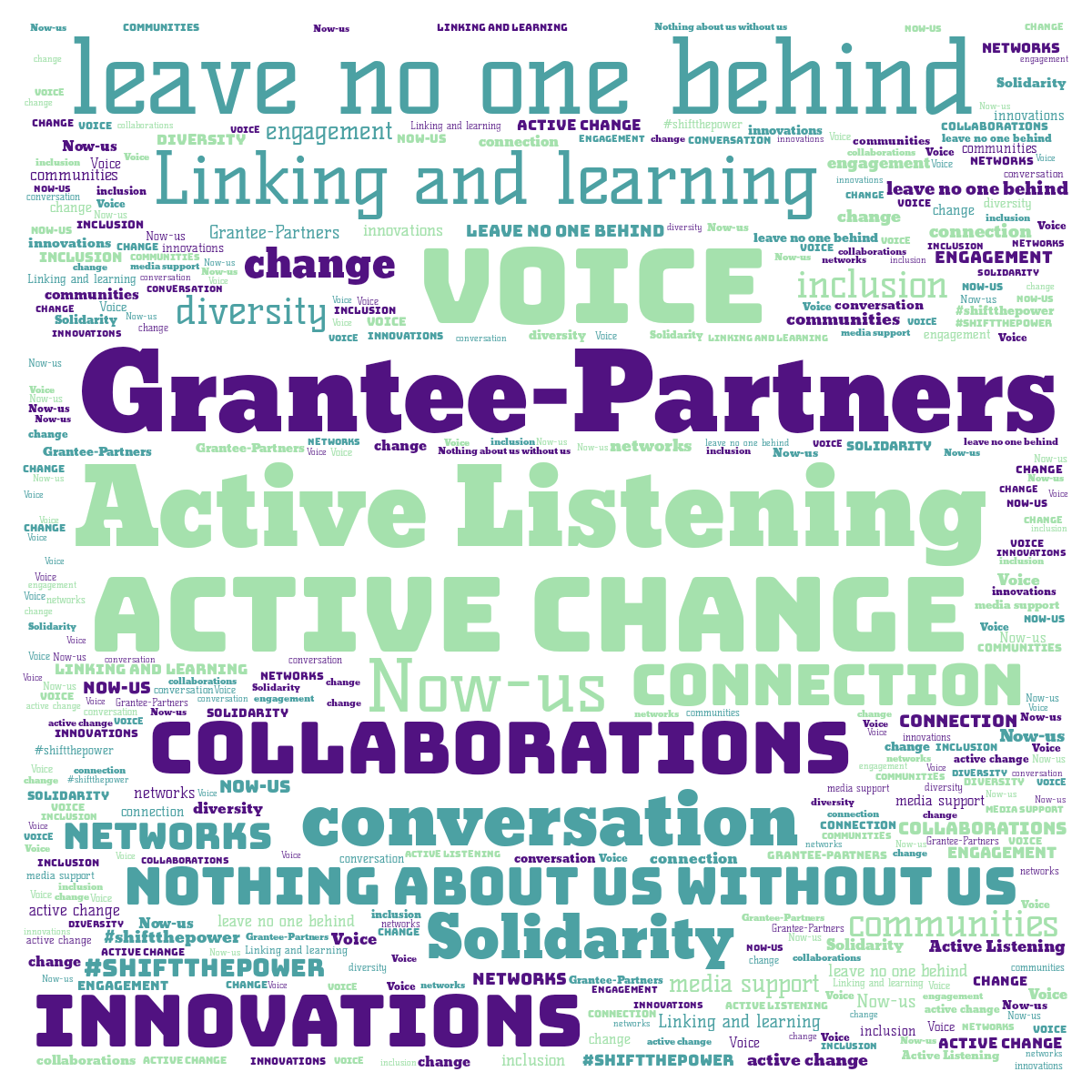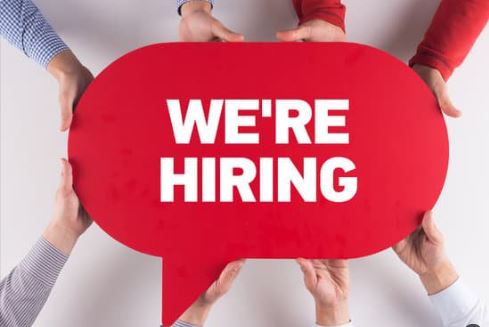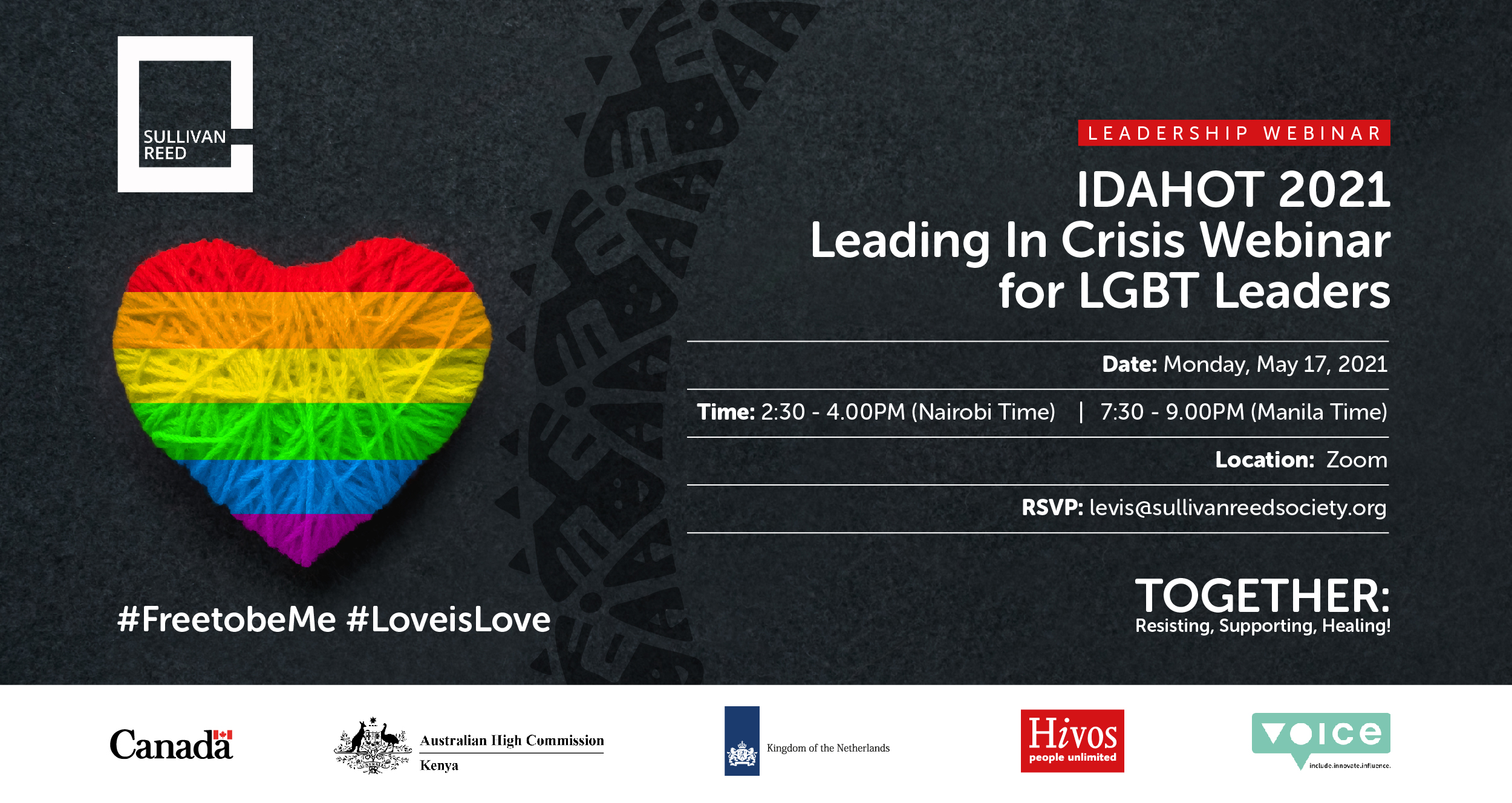From Mid-Term Review to Extension Approval
Or, what happened to Voice in 2019 and what will happen in 2020?
Written by Marinke van Riet, Global Programme Manager Voice
2020 got off to a great start – with cake!
On January 9, the Directors of Oxfam Novib and Hivos signed the Voice extension contract (2021-2024) with the Ambassador for Women’s Rights and Gender Equality from the Netherlands Ministry of Foreign Affairs, injecting a further Euro 36 million. The well-deserved celebration was the culmination of a 15-month process which started in September 2018 when Dutch consultancy firm MDF was commissioned by MOFA to conduct the Voice Mid-Term Review (MTR). The key milestones, approaches and process are presented in the timeline below.
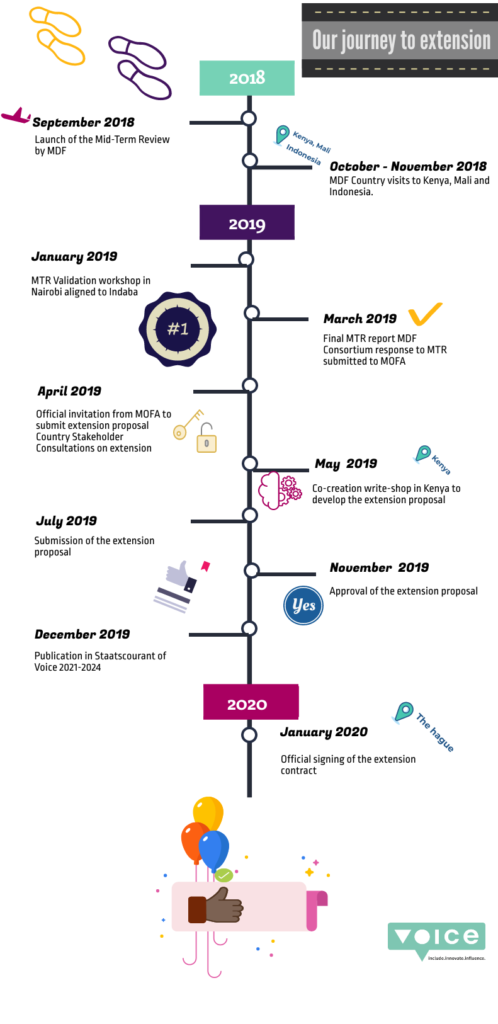
In this blog I will focus on sharing the key learnings and recommendations from the MTR and what commitments and actions we are taking. While the full MTR report is available via this link, here I have taken the liberty to summarise and/or group findings, recommendations and actions. Also it is important to note that the full Voice Policy Framework 2021-2024 that was published in the Dutch Government Gazette is available here.
What we learned from the findings
Overall, the consortium welcomes the findings and conclusions. We concur with MDF particularly on the extent to which the programme succeeded in reaching and mobilising the desired groups. Secondly, we are proud of the recognition that Voice has “demonstrated the ability to give practical meaning to the notion of Nothing About Us Without Us” by creating and managing an easily accessible grant funding mechanism. We see this as a huge compliment to all involved in shaping and implementing Voice. And finally, we concur with the observations of the MTR recognising the success of the Linking and Learning efforts of Voice. We therefore commit to keep Linking and Learning at the heart of Voice by proactively resourcing it to strengthen the success of the initial interventions and make learning widely accessible. Practically this means from April 2021, we will strengthen the ten country teams by adding a third full-time position: the Linking, Learning and Amplifier officer. This role is meant to also ensure closer linkages between Linking and Learning and Communications at country level -a recommendation from the MTR.
From recommendation to action
For the sake of simplicity, I have summarised the key recommendations and actions by grouping them in four key categories. As I mentioned above, the complete list of recommendations is available in the full MTR report.
Theory of Change
The MTR recommends that we revise the Voice Theory of Change as the previous one was more a Theory of Action. As part of the extension proposal, we took the opportunity to develop a fun visual version of the revised Theory of Change which is fully explained in this blog. Here is a sneak preview!
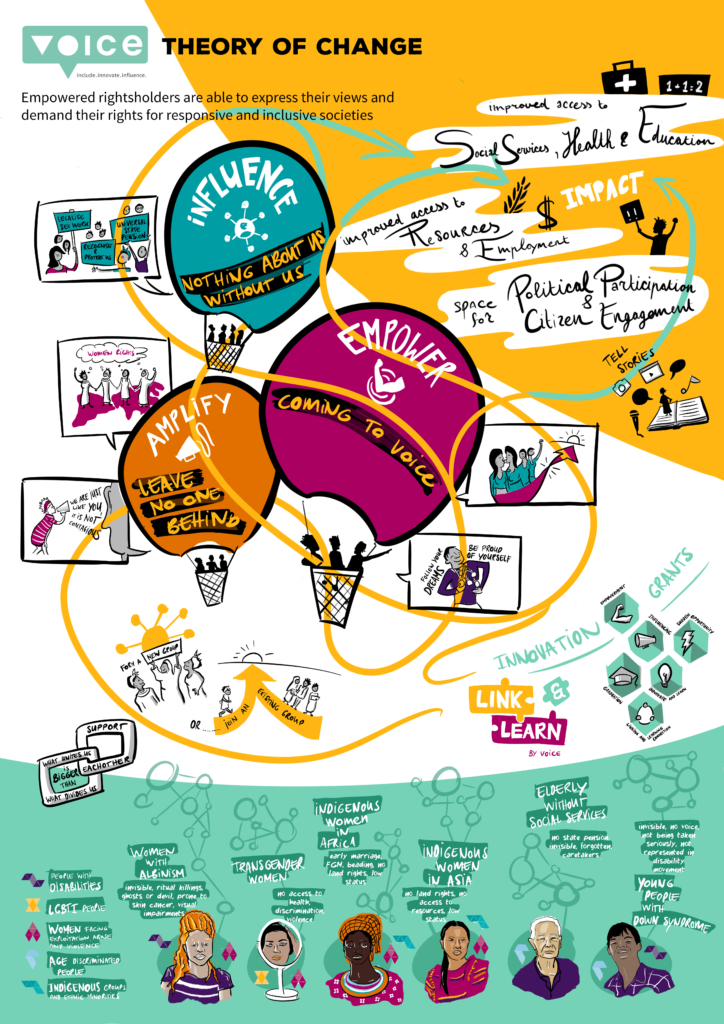
In the first quarter of 2020, we will animate the ToC and have it fully integrated into our grant management. This will help grantees see that their project doesn’t stand in isolation, but are in fact part of a bigger family fostering diversity and inclusion.
Grant management
The MTR recommends that we further standardise our forms -both for application and reporting purposes. In early 2020, we will introduce simplified forms in a digitalised way – allowing for more accessibility than our current system. We will also pilot conversation-based reporting, eventually replacing our 6-month interim report. We believe a one-hour conversation will provide a much richer and more personal picture than a written report. Obviously this doesn’t apply to the financial part! You may want to listen to the podcast between our two Regional Roving Grant Officers for Africa and Asia who are sharing what is in store for the grantmaking. Including special budget lines for staff well-being and self-care!
We will be launching new Calls for Proposals in mid-2020 after we have had an opportunity to analyse the local and global context through Community of Stakeholders . This will help frame the Calls and ground them in the rapidly changing realities.
Communications
The MTR recommends that we continue to strengthen our communications capacity. On our website we have already added an accessibility menu on the top right hand side plus a webreader service. As mentioned above from April 2021, we will have more dedicated human resources at country level which is a welcome addition to the existing global amplification role of the Communications Hub.
In early 2020, we are introducing a hope-based narrative to be bold in what we do stand for and want rather than countering what we don’t. Voice will be positioned as a fund promoting diversity and inclusion and as the NOW-Us! fund referring to NOthing about us Without Us. This will give it more agency and urgency . Target groups have already been changed into rightsholder groups to indicate the innate and legitimate claims people can make to demand their roles and rights for an inclusive society. We have also come up with the Voice manifesto including three key principles (see below).
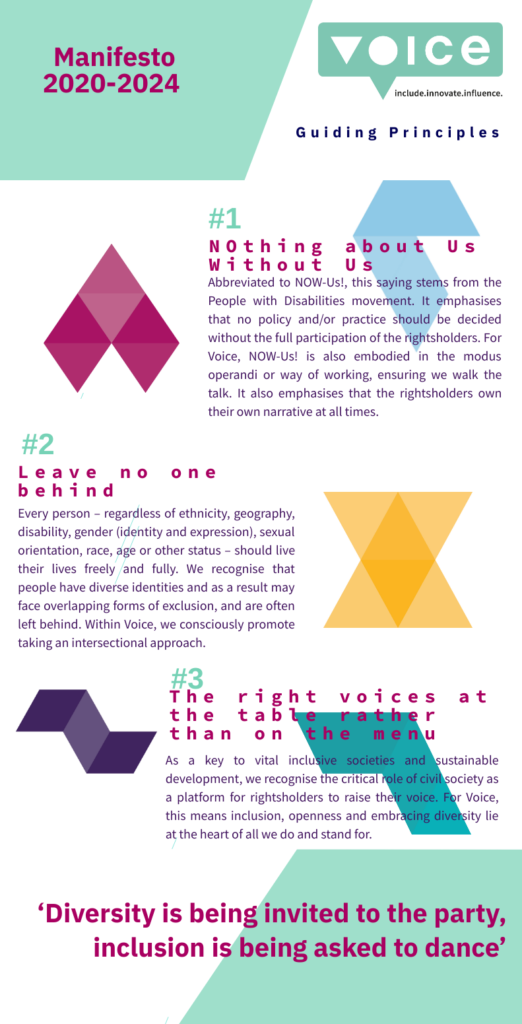
You can expect a different website in the coming months!
We will continue to look for innovative ways to amplify the #beautifultrouble the Voice grantees are creating, such as the podcasts we have made in partnership with NYC-based podcast show And Then Suddenly in a special series called And Then Suddenly; Rising Voice(s)
Overall positioning
The MTR makes a clear recommendation that Voice needs to serve all rightsholder groups in all ten countries -and this is something that we will develop a strategy for in 2020 to be implemented during the extension phase. In addition, they recommend we explore getting support for Voice from other donors. Our plan will be to use the extension period to build relationships and seek increased coordination with other like-minded donors at national and global level. This has already began with the current open Call for Ideas called From Open to Inclusive Governance, a joint Call with the Transparency and Accountability Initiative (with funding from the Hewlett Foundation). Another example is our involvement in an initiative co-facilitated by Civicus to increase coordination and collaboration among rapid response and emergency fund mechanisms to enhance accessibility for local groups.
The list presented here is only the tip of the iceberg and I do encourage you to read the full MTR report. Still, I hope my blog has given you a glimpse on how Voice has embraced the learnings and recommendations from the MTR and is moving them into actions! 2020 will be a great transitional year in which we will pilot and test before we move fully into our extension. Watch this space, exciting times ahead!

